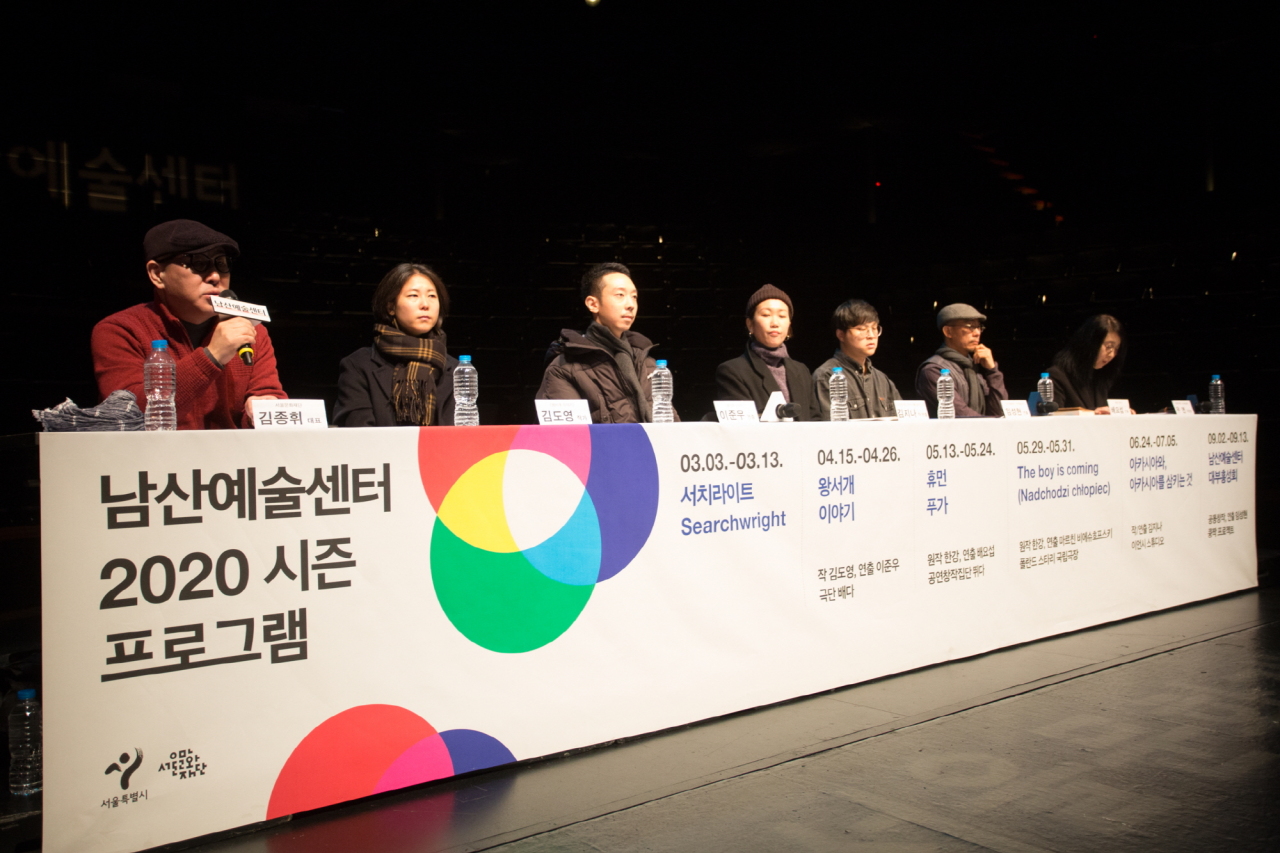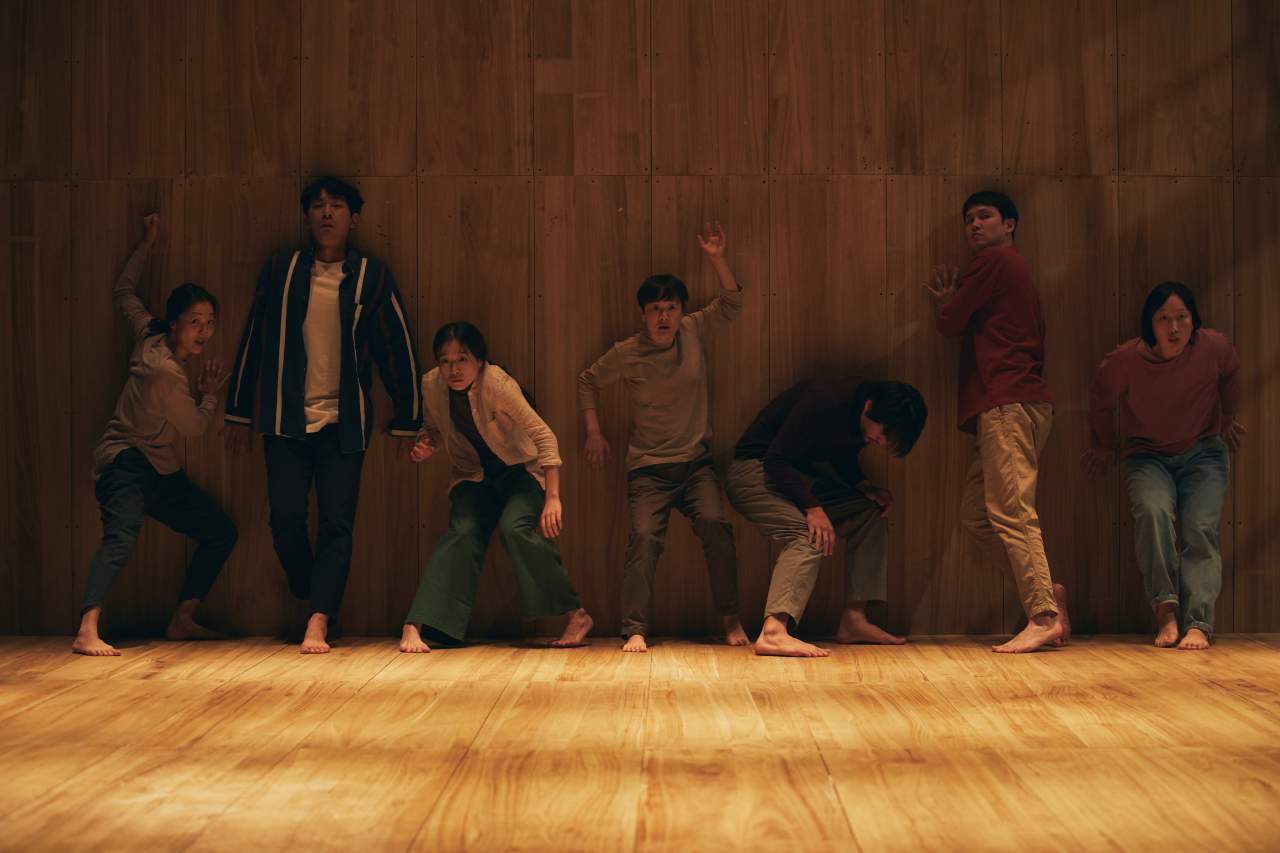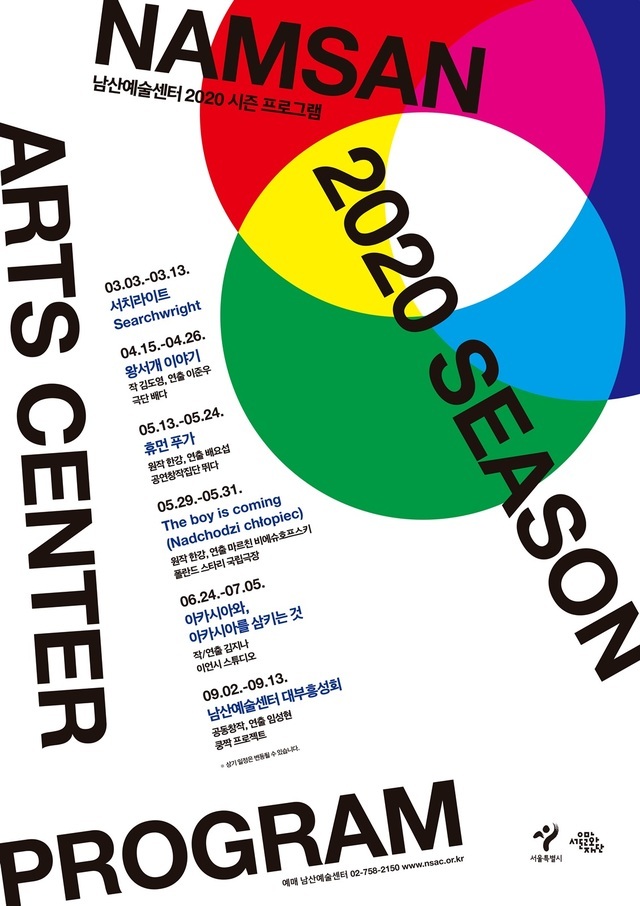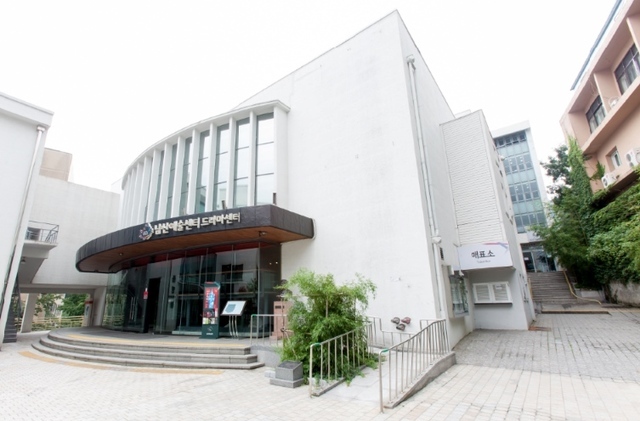 |
Kim Jong-whee, president of Seoul Foundation for Arts and Culture, speaks during a press conference in Seoul held at the Namsan Arts Center, Tuesday. (Yonhap) |
The Namsan Arts Center, managed by the Seoul Foundation for Arts and Culture, released its 2020 season program Tuesday, stressing that this season’s program is about remembering the atrocities linked to the 1980 Gwangju Democratic Uprising.
The Gwangju massacre saw mass killings of civilians by the military junta led by Gen. Chun Doo-hwan in response to the May 18 Gwangju Democratic Uprising in 1980, as the people of Gwangju called for democracy, protesting against the authoritarian regime.
In May, two plays based on the historic event are to go on the stage at the center.
“Human Fuga” from last season’s program returns May 13-24, followed by Polish production “The Boy is Coming” May 29-31. Both take their leitmotif from 2014 novel “Human Acts,” written by 2016 Man Booker International Prize winner Han Kang.
 |
Theater troupe Tuida performs “Human Fuga” at the Namsan Arts Center at a press event held in November 2019. (Lee Seung-hee/Namsan Arts Center) |
The novel delves into the killing of pro-democracy protesters by the military and the painful memories and scars of victims left behind.
“For 20 years, I have thought about how theatre and life should keep each other in check. ‘Human Fuga’ was the production that gave answers to my thoughts through fierce conflicts,” director Bae Yo-sub, who leads Performance Group Tuida for the play, said at a press event Tuesday.
“The things that we overlook in reality but still exist become an unbelievable massacre when expressed to the extremes,” Bae said, mentioning how the actors, staff and he suffered difficulties with last year’s production. Some became physically ill due to the stress of the play.
“I am not sure if we can go through this again. But we keep reminding ourselves, what is important about the play is speaking out about the victims’ pain and wounds that cannot be proven,” Bae said.
“Human Fuga” was cited as one of the three best plays of 2019 by the International Association of Theatre Critics-Korea. It will grace the stage in Gwangju from May 29-31, going on to the Stary Theatre in Krakow, Poland from Nov. 14-16.
Another production based on the Gwangju tragedy is “The Boy is Coming” directed by Polish playwright Marcin Wierzchowski. The play inspired by Han Kang’s work, titled “Boy is Coming” in Korean and “Human Acts” in its English translation, premiered at the Stary Theatre last year. The first act of the play is based on the story presented by Han Kang, while the second act is about similar historic events of Poland.
 |
Poster image for Namsan Arts Center’s 2020 program (Seoul Foundation for Arts and Culture) |
Three shows on the center’s program for 2020 are created by playwrights in their 30s. The plays deal with Manchuria from the 1930s to ’50s, the scars of Korea since the ’80s and the history of Christianity.
“It is interesting to see what kind of opinions the younger generation of playwrights in their 30s are to voice,” said Woo Yeon, the head of art center management. “The current generation’s value collapsed through the blacklisting (of cultural figures under the past administrations), Sewol ferry sinking and the #MeToo movement in the 2010s.”
“The younger generation will speak about the future and its direction. I am expecting a lot from plays the playwrights will stage at this theater with a hazy future.”
 |
Namsan Arts Center is located in Jung-gu, central Seoul (Seoul Foundation for Arts and Culture) |
The center which opened in 1962 is currently located on a Seoul Institute of the Arts property with the Seoul Metropolitan Government paying 1 billion won ($860,000) in annual rent to Dongang Arts Foundation, which runs the institute. In 2018, Seoul Institute of the Arts announced it would terminate the deal. The rent contract expires in December, and it remains unclear whether the theater will exist beyond that.
“Last year, the theater scene strived to maintain the public function of the center,” said Kim Jong-whee, the president of Seoul Foundation for Arts and Culture. “The Seoul Metropolitan Government is carefully looking into the issue after listening to the opinions of figures in the theater scene.”
By Im Eun-byel (
silverstar@heraldcorp.com)








![[Weekender] Korea's traditional sauce culture gains global recognition](http://res.heraldm.com/phpwas/restmb_idxmake.php?idx=644&simg=/content/image/2024/11/21/20241121050153_0.jpg)


